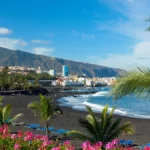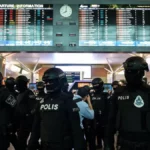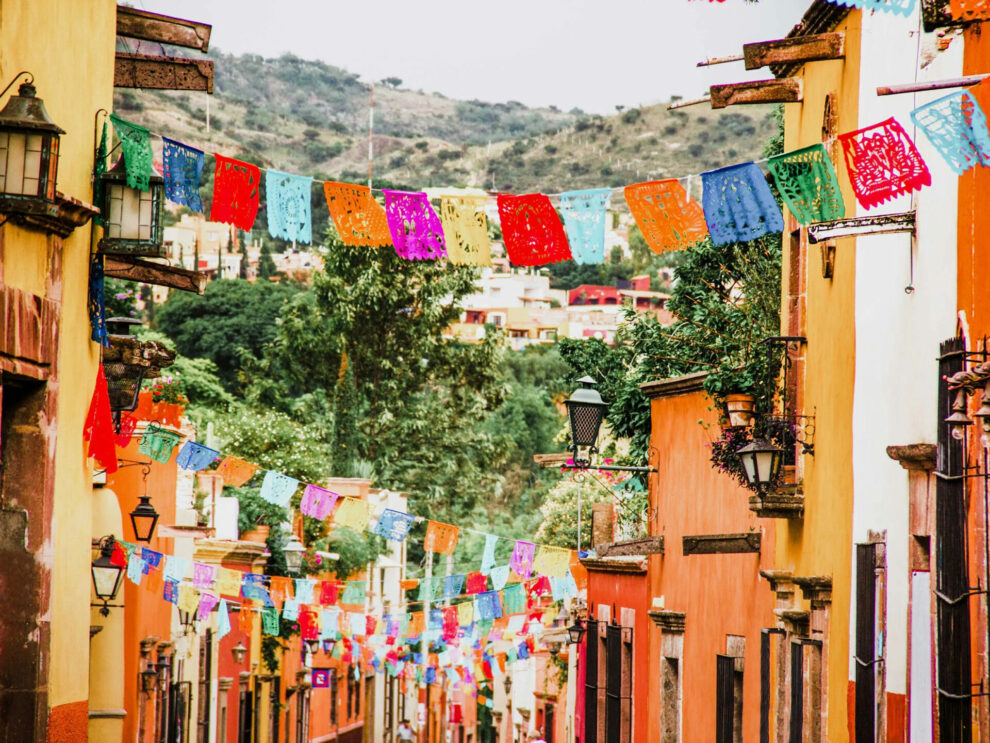Two Americans found dead after they were attacked and kidnapped near the border. Airports shuttered amid gang violence in Sinaloa. Turmoil among taxi drivers in Cancún.
A number of recent security incidents have raised concerns about the risks of traveling to Mexico, where more than 20 million tourists flew last year to visit the country’s beaches, cities and archaeological sites, or to obtain health care.
Ahead of the spring break holiday, a popular time for American tourists to visit the country, the U.S. Embassy issued a travel alert, urging visitors to exercise caution by avoiding dangerous situations and drinking responsibly, among other recommendations. “Crime, including violent crime, can occur anywhere in Mexico, including in popular tourist destinations,” the alert said. And the State Department has warned tourists to steer clear of six states, including the state of Tamaulipas, where the recent kidnapping occurred — and to exercise increased precautions in other popular destinations like Playa del Carmen, Cancún, Tulum and Mexico City.
An overwhelming majority of visitors enjoy a safe vacation in Mexico, and tourists are largely sheltered from the violence that grips local communities. But the attack and kidnapping of four Americans in the border city of Matamoros, two of whom were later found dead, along with recent disorder in Cancún and violence in early January that forced the closure of three airports in northwest Mexico, is prompting questions about whether the country’s broader unrest is spilling into other destinations.
What happened on the border?
On March 3, four Americans from South Carolina traveling in a white minivan crossed the border from Brownsville, Texas, into the city of Matamoros, in the Mexican state of Tamaulipas. One of the Americans was scheduled for cosmetic surgery.
Soon after the Americans crossed the border, gunmen fired on their vehicle and then abducted the group in a pickup truck. Officials later said that two of the group were found dead at a rural location alongside the other two, who had survived.
The Americans were attacked as a result of “confusion,” according to Irving Barrios, the state prosecutor in Tamaulipas. Matamoros has a long history of violence and highway shootouts, though that reputation has partially subsided in recent years. Then, in late February, one gang moved into the city to wrest control of drug sales from another, said Eduardo Guerrero, the director of Lantia Intelligence, a security consulting company in Mexico City.
“There are places in the country where the situation can change abruptly from one week to another,” he said. While the motives in the attack remain unclear, the Americans had “very bad luck,” Mr. Guerrero said, because they likely stumbled into a battle between the two gangs.
Editors’ Picks
The Lesbian Bar Isn’t Dead. It’s Pouring Orange Wine in Los Angeles.Our Best Passover Recipes‘Saturday Night Live’ Tackles the Trump Indictment
What happened earlier this year in Cancún?
Uber has been challenging the taxi unions for the right to operate in Cancún and won a court decision in its favor on Jan. 11. The ruling infuriated the powerful unions, which are believed to have links to local organized crime figures and former governors. Taxi drivers then began harassing and threatening Uber drivers.
The conflict generated widespread attention after a video of taxi drivers forcing a Russian-speaking family out of their rideshare car went viral, and after unions blocked the main road leading to Cancún’s hotel zone. That prompted the U.S. Embassy in Mexico to issue a security alert.
Mr. Guerrero said that the authorities will try to negotiate some kind of compromise, but there was a probability of more violence ahead.
Have authorities curbed violence that might affect tourists?
As a rule, criminals in Mexico are careful not to kill tourists, Mr. Guerrero explained, because doing so “can set in motion a persecution that can last years,” the consequences of which can be “very dissuasive,” he said.
But the rule doesn’t always hold. And in two popular destinations for foreign tourists — Los Cabos, at the tip of the Baja California peninsula, and the Caribbean coast — local and state officials have recently sought help from the United States to take on organized crime that threatened to drive off tourists.
A spasm of violence at the end of 2021 and early 2022 rattled the tourist industry along the Riviera Maya, the 80-mile strip of Caribbean resorts south of Cancún. Two visitors were killed in crossfire between local gangs in Tulum; a gunfight on a beach in Puerto Morelos sent tourists running for cover into a nearby hotel; a hit man gained entry to a luxury hotel in Playa del Carmen and killed two Canadian tourists believed to have links to organized crime.
The federal government sent National Guard units to patrol the beaches, and Quintana Roo state authorities asked U.S. law enforcement agencies, including the Federal Bureau of Investigation and the Drug Enforcement Administration, to provide intelligence, Mr. Guerrero said. Local authorities, flush with tourism revenues, invested in the police, which is typically the weakest link in Mexican law enforcement.
The joint approach led to a lull in gangland gun battles in Quintana Roo’s tourist areas, and experts say that drug sales to meet foreign demand no longer take place on the street, although they are continuing more discreetly.
The success in tamping down drug violence in Quintana Roo follows a similar improvement in Los Cabos a couple of years ago when U.S. authorities also collaborated with local officials in the state of Baja California Sur. The murder rate soared in Los Cabos in 2017 amid cartel wars, and although tourists were not targeted, that year police chased gunmen into the lobby of a luxury hotel in San José del Cabo, and a cooler containing two heads was left in a tourist area.
What about tourist areas in other states?
Even in states where crime is very high, tourist areas have generally been spared. San Miguel de Allende, a haven for U.S. retirees, is an island of relative peace in a state, Guanajuato, that has been riddled with cartel violence.
The Pacific Coast state of Jalisco, home to the resort of Puerto Vallarta, picturesque tequila country and the cultural and gastronomic attractions of the state capital, Guadalajara, is also the center of operations of the extremely violent Jalisco New Generation Cartel. The cartel’s focus of violence is in the countryside; Puerto Vallarta and the beaches to its north, including the exclusive peninsula of Punta Mita and the surfers’ hangout of Sayulita, are all booming — and, despite drug sales, the cartel’s control seems to limit open conflict.
Mexico City has become a magnet for digital nomads and shorter term visitors, and concerns about violence there have receded. The city’s police force has been successful in reducing violent crime, particularly homicides, and the number of killings has been cut almost in half over the past three years.
Are there any other safety concerns?
Street crime is still a problem almost everywhere, especially in bigger cities and crowded spaces. Kidnapping and carjacking are a risk in certain regions and many businesses that cater to tourists operate under extortion threats. While tourists may not be aware of underlying criminal forces, their power sometimes spills out into the open in spectacular shows of violence.
The attack in Matamoros is only the most recent example. Mexican border cities, which have long endured waves of violence, are not typically tourist destinations, although Americans often cross the border to visit family, seek out cheaper health care or dine at restaurants.
Three airports in the state of Sinaloa, including the beach destination Mazatlán, were closed on Jan. 5 amid gang violence after Mexican security forces arrested Ovidio Guzmán López, a son of Joaquín Guzmán Loera, the crime lord known as El Chapo, who is serving a life sentence in the United States. A stray bullet fired by cartel gunmen shooting at a Mexican military plane as it landed at the airport in the state capital, Culiacán, clipped an Aeromexico plane preparing to take off for Mexico City. Nobody was hurt and the plane returned to the terminal.
In August, gunmen positioned burning cars and buses to block roads around Guadalajara in response to a military raid on a meeting of criminal bosses. In October, a local politician was shot and killed in an upscale steakhouse in suburban Guadalajara as terrified diners crawled to safety.
Pierre de Hail, the president of Janus Group Mexico, a risk management company in Monterrey, is skeptical that security has improved. “There is too much random risk,” he said. “It’s all about being in the wrong place at the wrong time.”
What precautions should tourists take?
Mr. de Hail recommends researching the resort and news from the area you’re visiting. The U.S. State Department provides state-by-state information about travel risks in Mexico. As of early March, the department had issued its strongest possible warning — Level 4: Do Not Travel — for six states, including Tamaulipas and Sinaloa. Quintana Roo and Baja California Sur are at Level 2, indicating that visitors should exercise increased caution. (By comparison, the same Level 2 advisory is applied to France and Spain.)
The Matamoros incident shows how violence can flare up in places that have been quiet recently. Mr. Guerrero suggests searching on the internet before traveling for news of recent outbreaks.
Mr. de Hail also suggests buying travel insurance in case of a medical emergency or theft, and recommends that tourists keep a low profile to avoid attracting attention, he said, warning that it is easy to misread situations.
As anywhere, common sense should prevail, Mr. de Hail said: Don’t wear expensive watches or jewelry, and avoid dark and deserted places. He recommends making a copy of your passport, remaining alert while walking home at night and not leaving your drinks unattended. “I have had numerous cases of people asking for help because they were extorted coming back from bars,” he said.
He added: “If you’re staying in a place that has a report of strikes or demonstrations, don’t go there. You’re a fish out of water.”
Source: nytimes















